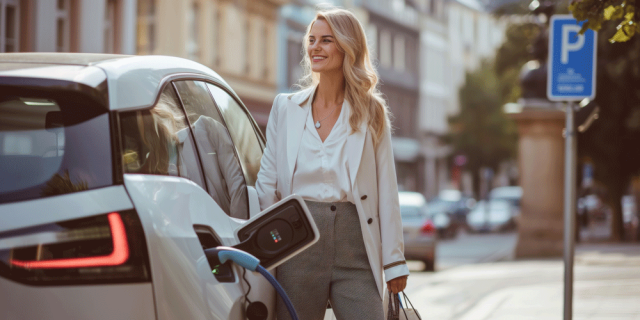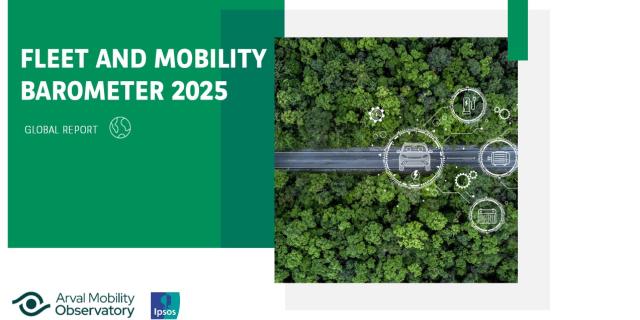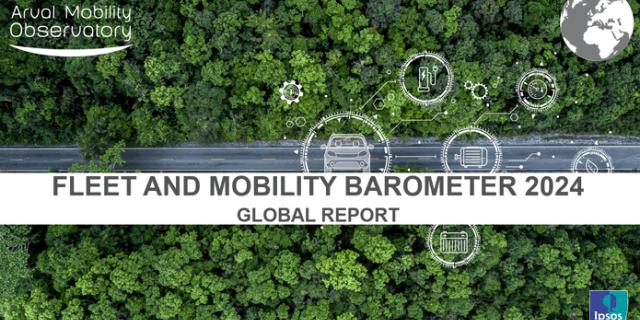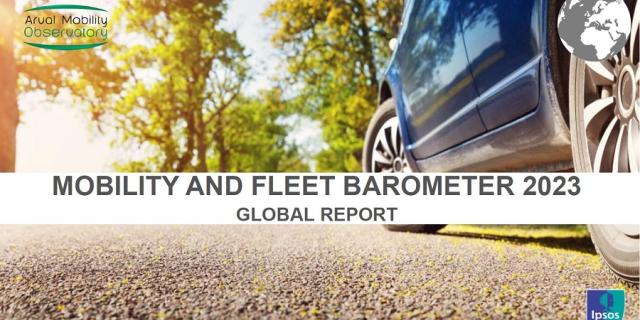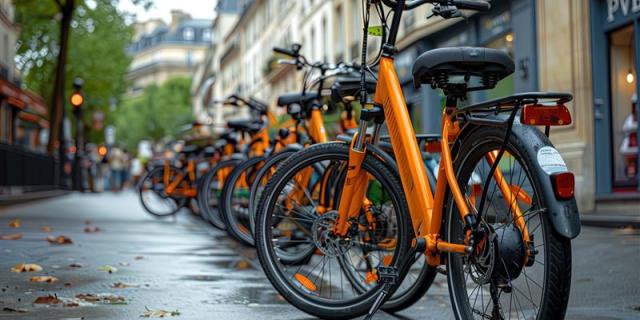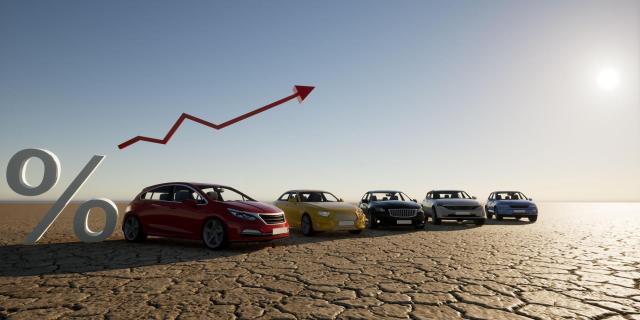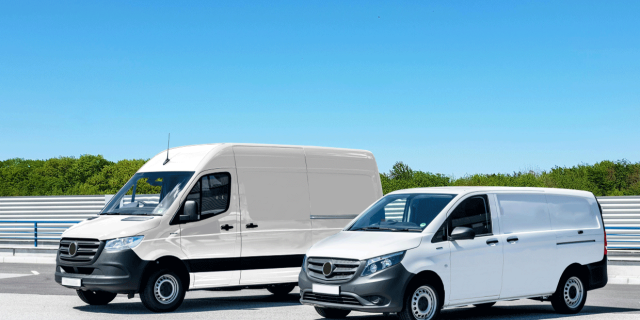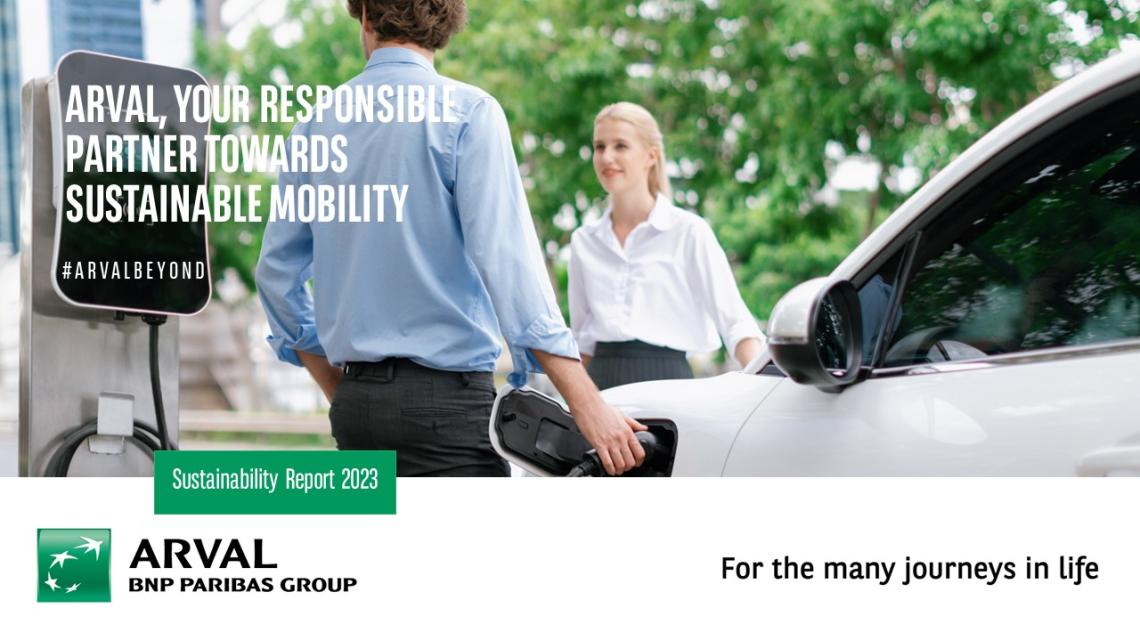Sustainability at Arval
Mobility is an essential need for people everywhere. In many regions, it gives access to vital services such as healthcare, employment and education. At the same time, transportation generates a significant proportion of global greenhouse gas emissions, accounting for almost a third of the EU’s final energy consumption in 2021. This trend has driven a massive increase of laws and regulations, while also raising investor, corporate and consumer’s expectations around mobility.
The key macro trends for the foreseeable future, as identified by the Arval Mobility Observatory Fleet and Mobility Barometer 2023, show that companies plan to pursue the growth of their vehicle fleet, focusing on energy transition, new mobility solutions and connectivity. Energy transition is clearly accelerating: 70 % of companies have already implemented or are considering implementing at least one alternative fuel technology on their passenger cars fleet within the next three years compared to 59 % last year. Furthermore, companies are massively deploying mobility solutions, with 71 % of companies having already implemented at least one mobility scheme for their employees (corporate car sharing, bike leasing or mobility budget to name a few).
The Fleet and Mobility Barometer 2023 also highlights the acceleration in the implementation of connectivity, with almost one in two companies now having a telematics tool integrated within their fleet, compared to 38% last year. The main reason to have connected vehicles is to locate vehicles or improve vehicle security (41 %), increase driver safety (34 %), enhance operational efficiency (29 %) and reduce fleet costs (25 %).*
Nonetheless, according to Arval Mobility Observatory’s Employee Mobility Survey 2022**, there is still room for improvement. 55 % of employees say they are not convinced by their company’s mobility offers, and less than half of all surveyed employees use at least one mobility service. This is either due to companies not offering any mobility related service, or the offer not being appropriate to meet their needs.
Making sustainable mobility simpler, safer and more accessible
As a global provider of multi-mobility solutions, Arval is convinced that low-carbon and safe mobility is crucial for human wellbeing. That is why Arval’s commitment to making a positive social and economic impact is key, by contributing to enhance mobility and driver safety and by accelerating the energy transition.
Through mobility, Arval helps people foster social connections and promote access to education and health. Through its leasing activity, it enables customers to forgo the expense of ownership, providing them with flexibility and peace of mind.
Arval aims to reduce Greenhouse Gas Emissions (GHG) and resource waste throughout the lifecycle of its fleet and across all operations. It encourages its suppliers to adopt responsible practices across their activities. Arval also promotes the adoption of low-carbon mobility with road safety behaviours, including safe and responsible driving.

“At Arval, we provide end-to-end solutions for our clients to accelerate their energy transition: Electric vehicles and alternative employee mobility solutions such as car sharing, bike leasing, etc.
Strong partnerships allow us to deliver diverse, integrated solutions. We also innovate and invest in new technologies d to continually improve and diversify our offers.”
Alain van Groenendael, CEO, Arval
Arval’s sustainability strategy
Connected, shared and multi-modal mobility
Arval places sustainable mobility at the heart of its strategy and its offerings. While full-service fleet leasing remains the company’s principal activity, it has expanded its offer to become a provider of mobility in all its forms.
Electrifying fleets and diversifying mobility
The electrification of corporate fleets is crucial to drive decarbonisation, and Arval has been proactive in enabling the adoption of battery electric vehicles. Between 2019 and 2022, the company’s electrified fleet grew by a factor of four and is set to reach 350,000 battery electric vehicles by 2025.
Arval’s all-in-one electric vehicle offer includes vehicle leasing, maintenance and associated services like charging infrastructure and payment. Thanks to key partnerships, Arval’s customers can choose a wide range of electric vehicles from different car manufacturers and have access to a growing network of charging points providers. Arval is actively investing in innovative technologies such as Charging-as-a-Service.
Flexibility is another important characteristic of Arval’s offer to encourage customers to adopt alternative mobility more easily. It is by definition a more sustainable choice, as providing flexible products to customers allows them to organise their mobility in a more efficient way by trying out new offers. For example, flexible contracts are an ideal solution to test a battery electric vehicle before committing to its long-term use.
In parallel, Arval has built strong partnerships to provide alternative mobility solutions in 17 countries, positioning itself as a 360° mobility player. These include sharing mobility, micro-mobility and mobility cards. The Arval Mobility App for example, is a Mobility-as-a-Service platform dedicated to companies and all of their employees, enabling users to plan and pre-book multi-modal trips.
Optimising mobility and safety through connectivity
 With over a decade of experience in connected cars, Arval helps fleet managers and drivers leverage their data to maximise efficiency, sustainability, and safety.The company has already equipped more than 500,000 vehicles with telematics and is aiming to reach 1.5 million by 2025.**
With over a decade of experience in connected cars, Arval helps fleet managers and drivers leverage their data to maximise efficiency, sustainability, and safety.The company has already equipped more than 500,000 vehicles with telematics and is aiming to reach 1.5 million by 2025.**
Through its SMaRT approach, Arval supports corporate clients to define and achieve their energy transition and decarbonisation objectives.
By analysing multiple data from vehicles and car manufacturers, Arval enables customers to adopt the mobility mix that best fits their local situation, objectives and budget, simultaneously reducing their mobility costs and the carbon footprint of their employees’ mobility activities.
With the Arval Driving Rewards programme, drivers benefit from data-driven insights on how their driving behaviour affects safety, energy consumption, carbon footprint and costs, and are therefore incentivised to its improvement.
The solution promotes safe and responsible driving, triggering a virtuous circle that positively impacts budget, health and the environment.
A regulatory environment that encourages sustainable mobility
Mobility is at the heart of societal issues around the world and is subject to even more regulations and public policies for decarbonisation measures. In the European Union, such measures are designed to push forward and reach carbon neutrality by 2050, while in the United States, decarbonisation has once again become a main focus since re-joining the Paris Agreement in February 2021.
The announcement by the European Commission in July 2021 of the phase-out of CO2 emitting engines by 2035 has revived interest in alternative energies. The adoption in October 2023 of the revised renewable energy directive will necessarily help its acceleration. While gas and hydrogen-powered vehicles are becoming a possibility for car fleets, electricity is the one recognised as the most likely successor to "all oil".
In the same way in France, the "Climate and Resilience" law, issued in September 2021, introduced stricter measures. In particular, it amplifies several points of the 2019 Mobility Orientation Law, introducing numerous standards that will have significant consequences for companies, public stakeholders and local authorities in terms of travel organisation and energy transition.
* The Arval Mobility Observatory Mobility and Fleet Barometer 2023. Global results were released by Arval Mobility Observatory on May 30 2023. For this independent survey, interviews with 8622 companies’ decisions makers were conducted between August 18 2022 and March 24 2023 by the independent research company Ipsos. The concerned companies operated at least one vehicle, and participants were invited for a full interview by phone. Its scope covered 30 countries in total: Austria, Germany, Belgium, Spain, France, Greece, Italy, Luxembourg, the Netherlands, Poland, Portugal, UK, Czech Republic, Slovakia, Romania, Switzerland, Finland, Denmark, Norway, Sweden, New Zealand, Australia, Mexico, North America, Turkey, Morocco, Chile, Peru and Brazil.
For more info, access the key findings and download the Arval Mobility Observatory Fleet and Mobility Barometer here: Arval Mobility Observatory Mobility and Fleet Barometer 2023| COM
** The Arval Mobility Observatory undertook an independent study in cooperation with the independent research company Ipsos on employee mobility, current practices and expectations of employees regarding their company’s mobility offers. For this independent survey, 2905 employees in private companies with more than 100 employees were interviewed, taking place between September 1, 2022 and September 11, 2022. Participants have completed the online survey, which was conducted in 6 countries: Germany, Belgium, Spain, France, Italy and the Netherlands.
Read the key findings and download the Arval Mobility Observatory Employee Mobility Survey here: Arval Mobility Observatory Employee Mobility Survey 2022
*** The achievement of this target depends on customer demand for Arval’s telematics offer.



